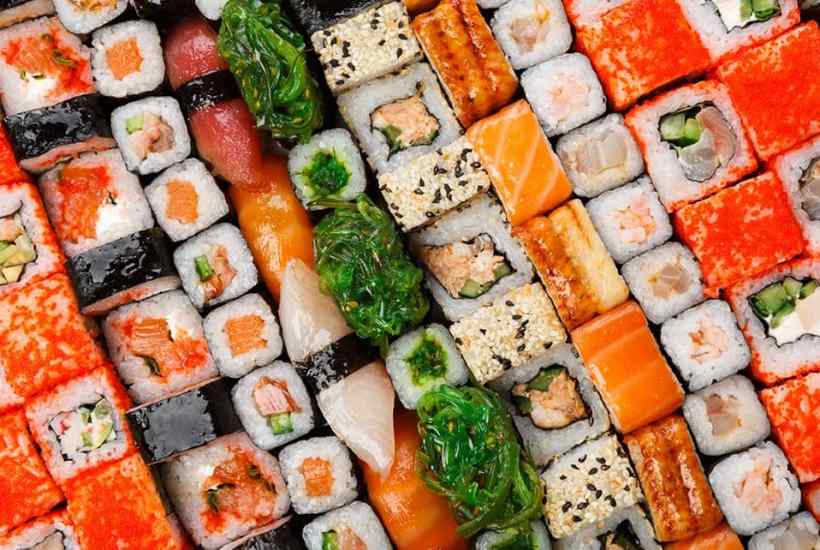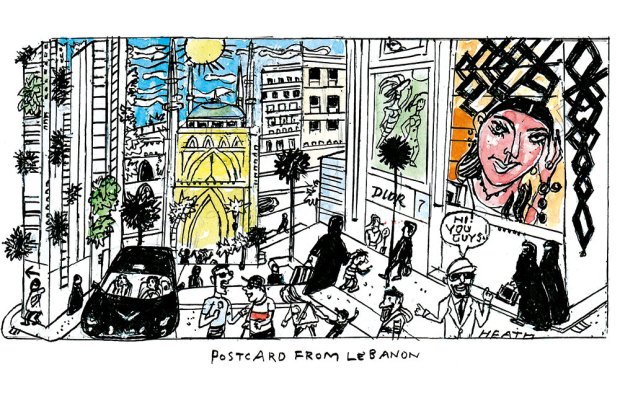Tokyo
After 23 years in Japan, having tried everything from yatai (street food) to deep-fried globe fish in a kaiseki (traditional) restaurant, I have come to the conclusion that Japanese food is overrated. It is rarely less than perfectly presented, and it can be superb – but it can also be bland and homogenous.
Part of the problem is that much of what delights the Japanese about their food is unrelated to its actual taste. If British food, in the bad old days at least, was simply fuel, Japanese food has always been, to some extent, art. A high-end Japanese meal is the equivalent of a Wagnerian gesamtkunstwerk, with the colours, the choice of bowls, utensils, tablecloth, room, and tinkling water from a nearby stream, if available, part of the all-encompassing sensory experience.
A foodie friend undertook a tour of Japan’s most famous regional ramen restaurants. He recalled one establishment where he sat down, began chatting to his companion and was angrily hushed by the proprietor, who pointed to a sign on the wall. It was a ‘no-talking’ restaurant.
It is also medicine, with an inordinate amount of attention paid to the nutritional value and the fabled balance and harmony of ingredients, their provenance and seasonality. There are strict rules about eating until you are 80 per cent full, and wasting not a scrap. All of these considerations are admirable in their way; but it does occasionally make one yearn for the joy of eating for the sheer pleasure of it.
The air of mysticism that surrounds a visit to a traditional Japanese restaurant is both seductive and intimidating. It lulls us into the belief that we are taking part in an ancient ritual, while silencing any doubts at having to sit in an excruciating seiza style for hours eating tiny quantities of often rather tasteless dishes. Declare your favourite food to be French or Italian or Indian or Thai and you’ll make little impression and win no status points. But Japanese? Well, you’re instantly proclaiming your sophistication.
It makes for powerful marketing. Koyn, a new restaurant in Grosvenor Square, boasts food ‘inspired by the nature-spirited roots and duality of Mount Fuji’. The ‘Cosmos of Koyn’, whatever that means, promises an ‘appreciation of balancing modernity with tradition’. The ‘duality’ is represented by the restaurant being split into ‘midori’ (green, nature) and magma (fire), which isn’t even a Japanese word. Only the Japanese, or the Japanese-inspired, could get away with this.
And the whole thing may even be a bit of a sham. As Michael Booth suggests in Sushi and Beyond, much of the kaisekirigmarole may have been a mid-20th century invention boosted by clever marketing – a bit like the Ploughman’s lunch. I have some sympathy with Donald Trump, who, unlike most visiting dignitaries, passed on it all, and instead went for a burger and chips with Shinzo Abe when he was in town.
It’s not just at the gourmet end of things that the respect for tradition can seem excessive. At the New Year holiday everyone is obliged to eat osechi ryori, preserved food, which even many Japanese will admit is bland. The custom originated as a way of giving housewives a break from cooking over the holiday season. The refrigerator rendered this rationale obsolete half a century ago. Yet it persists.
Japan, which this week reopened to international tourists, has been called a country with no coherent national religion, but some have speculated that its true religion is itself, the worship of its own customs, history and supposed uniqueness. Traditional Japanese cuisine fits this paradigm well, with the preparation, serving and eating of food akin to holy sacraments.
Which is not to say the hype is never justified. I have had some unforgettable dining experiences in Japan. Exceptional Japanese food is truly exceptional. But couldn’t that be said of almost any cuisine?
Got something to add? Join the discussion and comment below.
Get 10 issues for just $10
Subscribe to The Spectator Australia today for the next 10 magazine issues, plus full online access, for just $10.
You might disagree with half of it, but you’ll enjoy reading all of it. Try your first month for free, then just $2 a week for the remainder of your first year.














Comments
Don't miss out
Join the conversation with other Spectator Australia readers. Subscribe to leave a comment.
SUBSCRIBEAlready a subscriber? Log in